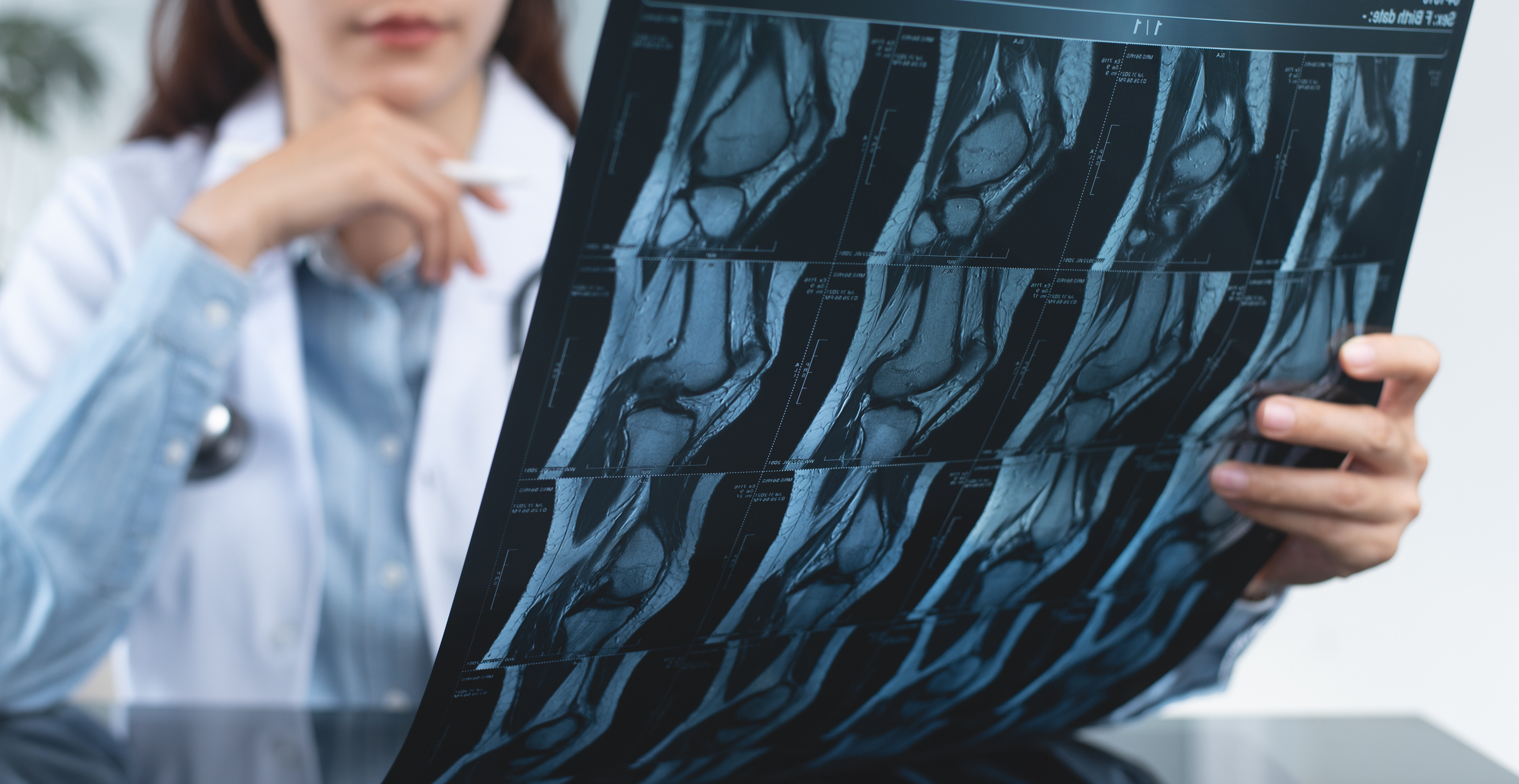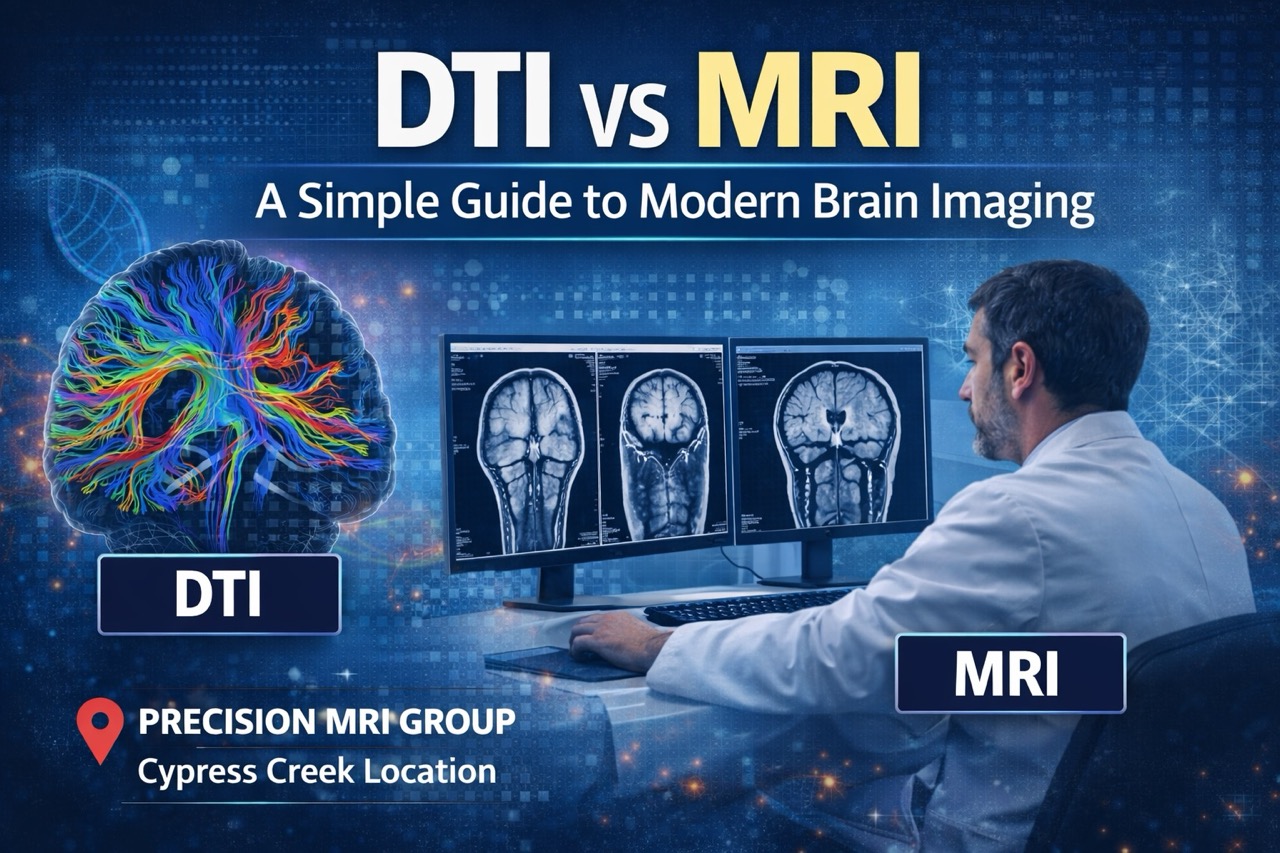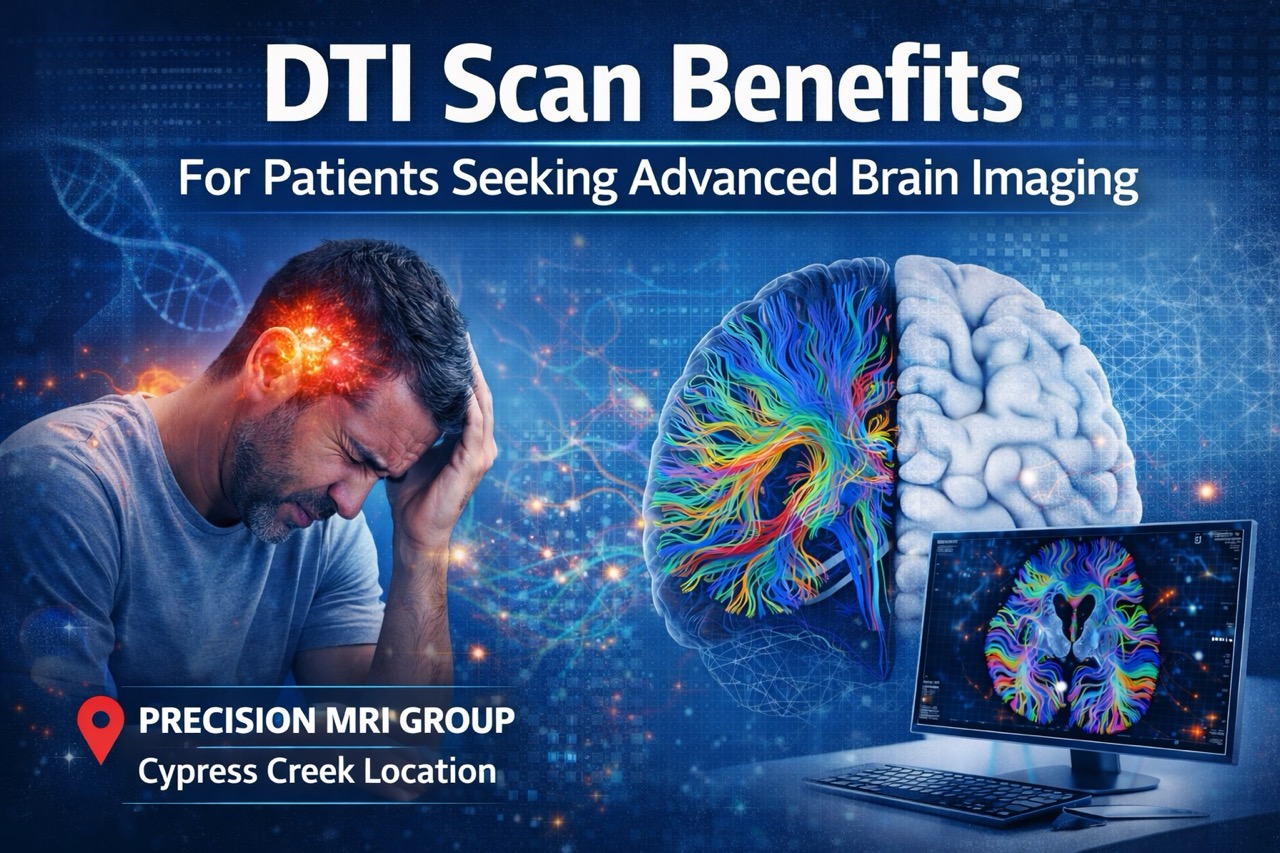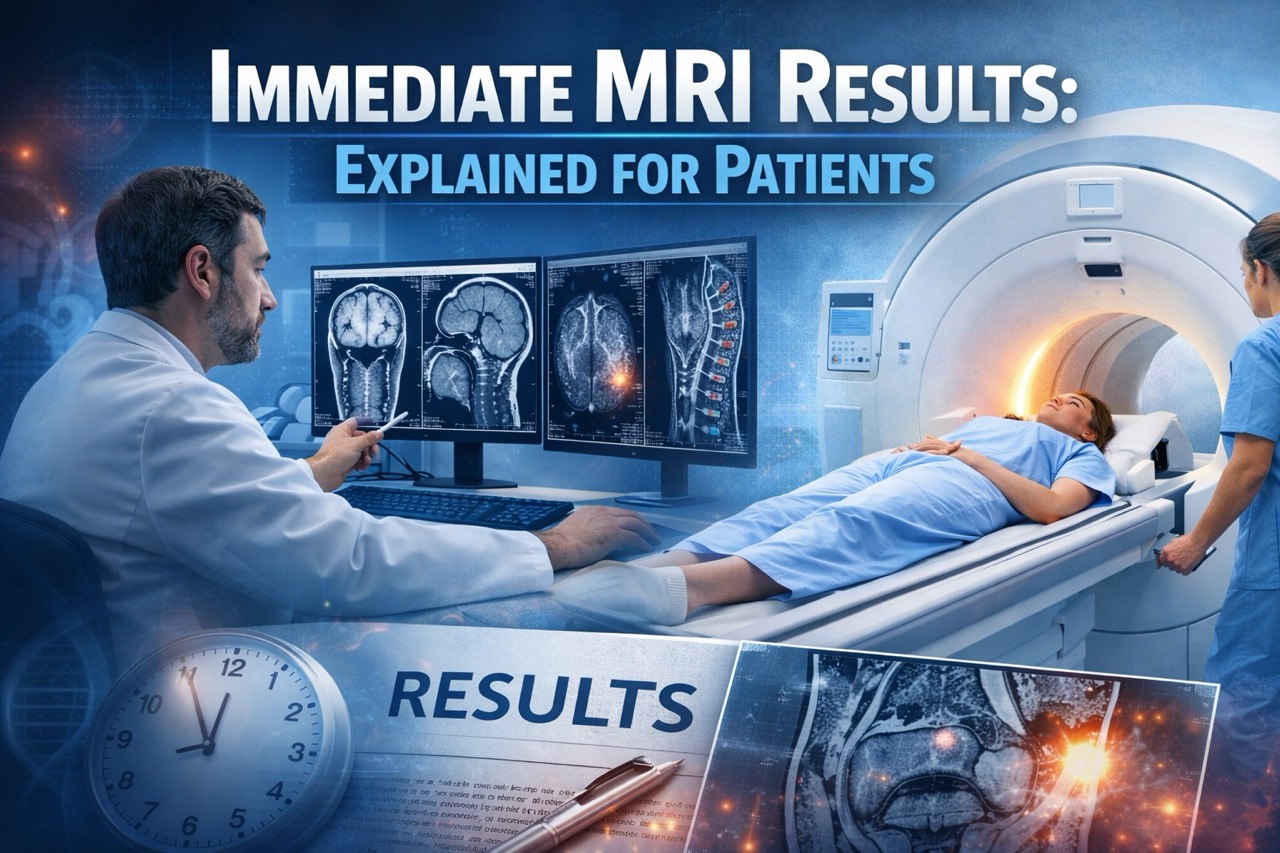Knee pain can be a debilitating issue, affecting your mobility and overall quality of life. Whether it stems from a sports injury, arthritis, or an unexplained discomfort, getting to the root of the problem is essential for effective treatment. That’s where Magnetic Resonance Imaging (MRI) comes into play. An MRI provides detailed images of the structures within your knee, helping your healthcare provider identify the cause of your pain and determine the best course of action. But once you’ve undergone an MRI, the next step is understanding the results—a task that can be daunting without the right guidance.
At Precision MRI Group, we place a premium on patient safety, comfort, and quality care. Our Board-Certified Radiologists ensure that your MRI results are processed with the highest accuracy and made available within 24 to 48 hours. In this comprehensive guide, we’ll walk you through the key aspects of your knee MRI, helping you make sense of the findings and what they mean for your health.
The Basics of Knee MRI: What You Need to Know
How Does a Knee MRI Work?
A knee MRI uses a powerful magnetic field and radio waves to create detailed images of the tissues inside your knee. Unlike X-rays, which are more effective for viewing bones, an MRI excels in showing soft tissues like cartilage, ligaments, tendons, and muscles. This makes it an invaluable tool for diagnosing a wide range of knee conditions that might not be visible through other imaging methods.
What Can a Knee MRI Detect?
Your knee is a complex joint, comprising bones, cartilage, ligaments, tendons, and other structures that all work together to enable movement. When any of these components are damaged or diseased, it can result in pain, swelling, and limited mobility. A knee MRI can help detect:
- Meniscus Tears: The meniscus is a wedge-shaped cartilage that acts as a cushion between your thighbone and shinbone. An MRI can reveal tears in the meniscus, which may appear as a change in its shape or position.
- Ligament Injuries: The knee contains several crucial ligaments, including the anterior cruciate ligament (ACL) and posterior cruciate ligament (PCL). An MRI can detect tears or sprains in these ligaments, which are common in athletes and active individuals.
- Tendon Problems: Tendons connect muscles to bones. The quadriceps and patellar tendons are particularly important in knee function. An MRI can identify tendinitis, tears, or other issues affecting these tendons.
- Cartilage Damage: Cartilage provides a smooth surface for bones to glide over each other in the joint. Damage to cartilage can lead to conditions like osteoarthritis, which can be visualized with an MRI.
- Fluid Build-Up: The presence of excess fluid in the knee joint, often due to inflammation or injury, can be detected on an MRI as bright white areas.
Interpreting Your Knee MRI Results: What to Look For
Meniscus Injuries: Understanding the Tears
The meniscus plays a vital role in knee stability and shock absorption. When it’s damaged, it can lead to pain, swelling, and difficulty moving the knee. On an MRI, a meniscus tear might appear as a disruption or abnormal shape in the cartilage. Common types of meniscus tears include:
- Bucket Handle Tear: A significant tear where a portion of the meniscus flips into the joint, often requiring surgical intervention.
- Intrasubstance Signal: Not necessarily a tear, this term indicates abnormal tissue appearance within the meniscus, which could be due to aging or increased vascularity.
Ligament Injuries: The ACL and PCL in Focus
Ligament injuries are common in sports and other high-impact activities. The ACL and PCL are the most frequently injured ligaments in the knee:
- ACL Tears: Often seen in conjunction with a bone bruise, an ACL tear on an MRI may appear as a disruption or a lack of continuity in the ligament fibers.
- PCL Tears: Easier to visualize due to its size, a PCL tear will typically show up as a distinct break or abnormality in the ligament structure.
Tendon Problems: Identifying Tendinitis and Tears
Tendons are strong, fibrous tissues that connect muscles to bones. Two key tendons in the knee are:
- Quadriceps Tendon: Connects the thigh muscles to the knee cap. Tendonitis in this area, often due to overuse, can be identified on an MRI as inflammation or thickening of the tendon.
- Patellar Tendon: Links the knee cap to the shinbone. Injuries to this tendon can cause significant pain and are often visible on an MRI as changes in the tendon’s structure.
Cartilage Damage: The Early Signs of Arthritis
Cartilage degradation is a common issue as we age, and it’s a primary factor in conditions like osteoarthritis. An MRI can show:
- Cartilage Loss: Reduced cartilage thickness or roughened surfaces, indicative of wear and tear.
- Bone Spurs: Growths that develop on the edges of bones in the joint, often due to chronic cartilage loss.
Fluid Build-Up: What Does It Mean?
Fluid in the knee joint can be a sign of inflammation or injury. On an MRI, fluid build-up is typically seen as bright white areas within the joint. This could be due to:
- Joint Effusion: An abnormal amount of fluid in the joint, often resulting from trauma or arthritis.
- Baker’s Cyst: A fluid-filled sac behind the knee, which can be a response to arthritis or a knee injury.

The Role of Precision MRI Group in Your Knee Health
At Precision MRI Group, we understand that an MRI can be a critical step in diagnosing knee problems, but it’s only part of the journey. We place a strong emphasis on patient care, ensuring that you’re comfortable and informed every step of the way. Here’s how we stand out:
- Expert Radiologists: Our Board-Certified Radiologists specialize in musculoskeletal imaging, providing accurate interpretations of your MRI scans. Your results are typically available within 24 to 48 hours, ensuring timely care.
- Patient-Centered Approach: We offer free transportation, flexible scheduling, and a multilingual staff fluent in English, Spanish, and Creole to accommodate all your needs.
- Advanced Technology: Our state-of-the-art MRI machines deliver high-resolution images, giving your healthcare provider the detailed information needed to diagnose and treat your condition effectively.
When to Discuss Your Results with Your Healthcare Provider
After receiving your MRI results from Precision MRI Group, it’s essential to discuss them with your healthcare provider. They can explain the findings in detail, correlate them with your symptoms, and recommend the best treatment options. Treatment may range from physical therapy to surgical intervention, depending on the severity of your condition.
Your provider might also use the MRI results to monitor the progress of an existing knee condition or the effectiveness of a treatment plan. Regular follow-ups and additional imaging may be necessary to ensure that you’re on the right track toward recovery.
Take Control of Your Knee Health with Precision MRI Group
Understanding your knee MRI results is a crucial step in taking control of your health. Whether you’re dealing with a meniscus tear, ligament injury, or cartilage damage, having a clear picture of your knee’s condition allows you and your healthcare provider to make informed decisions about your treatment.
At Precision MRI Group, we are committed to providing you with the highest level of care, from the moment you schedule your appointment to the time you receive your results. Our goal is to empower you with the knowledge and support you need to achieve the best possible outcomes for your knee health.
Don’t wait to address your knee pain—schedule your MRI with Precision MRI Group today. Our friendly and knowledgeable staff are ready to assist you with all your medical imaging needs, ensuring a smooth and stress-free experience. Contact us now at (954) 391-7844 or visit our location in Pembroke Pines to take the first step toward a pain-free future.




